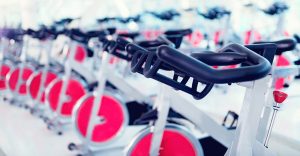
Pushing through the consume is important for a decent, damp with sweat turn class. In any case, there’s a major distinction between that ‘harms so positive sentiment’ and genuine agony. So on the off chance that you’ve at any point left the studio with an incredible exercise on the books, however a pain-filled lower back to show for it, this is the way to stop the aggravation ASAP, and why it occurs in any case.
What’s causing your back torment?
While everyone and each “body” is unique, low back torment during or after turn class occurs for some reasons, and now and then different things are influencing everything. “Lower-back torment from cycling can be connected with a few unique elements including inappropriate bicycle arrangement, helpless structure, the muscles utilized in the actual exercise, abuse, or a blend of these variables,” says Aylon Pesso, a Boston-based muscular wellness mentor. To some extent, fault the standard cycling position-lashed in and inclined forward-itself. It inherently focuses on your lumbar spine (lower back), particularly assuming that you’re now harmed, says Scott Weiss, C.S.C.S., a New York-based games actual specialist. Since you’re not outside out and about or the path and utilizing your center to turn, steer, or direction the bicycle, you can end up coming down on your circles in class, he says. Additionally, assuming you’re competing for that best position on the leaderboard in each class, you are most likely working overwhelm muscles beyond the place of exhaustion, which can make different muscles overcompensate, stressing your lower back, says Pesso. (P.S. Here is an Ancient Trick for Beating Back Pain) Adding affront to injury, since a great many people go through their days sitting, your hip flexors are now inclined to shortening and fixing, says Pesso. Then, at that point, ponder the genuine exercise, which incorporates a type of sitting as you bring your knees all over. “While we may not be effectively captivating the hip flexors all through the development, they are as yet shortening and contracting,” he says. These tight hip flexors? That’s right, you got it. They, as well, can add to that lower-back torment.
Step by step instructions to fix the aggravation and forestall it later
You don’t have to bounce off the seat for great. Avoiding torment comes down to dominating great structure the essential part of which is a straight spine, says Weiss. “As we push through a hard class, we tend to droop and smash down,” says Pesso. Be that as it may, twist your lower back, and you’ll feel it in your lower back, he says. Clear. To this end educators encourage you to push your chest forward, pull your shoulders back, and keep your arms long and straight, he says. Go ahead and correct assuming you want to. “Lift your butt off the seat briefly, and slant your hips forward to keep a straight line from your hips to your head.” A legitimate bicycle arrangement likewise sets you up for torment-free achievement in the studio, says Weiss. What to check for? Ensure your knees aren’t coming up excessively high and focus on a 90 percent expansion in your leg at the lower part of the pedal stroke, proposes Jess Bashelor, proprietor of The Handle Bar Indoor Cycling Studios in Boston, MA. Concerning the actual bicycle? “The handle bars ought to be a couple of inches higher than the seat, at the end of the day the tallness ought to be founded on solace and stance,” she says. (Anything that will get you to a straight spine.) How far forward or behind you are from the hawks is likewise significant. “At the point when you’re at the front of your pedal stroke, your knee ought to be situated straight over the bundle of your foot.” A great deal of the stretches your educator as of now does toward the finish of class-like a Stork Stretch for your quads and a Figure Four for your hip flexors-can assist with moderating agony, however, adaptability is the way to life span in cycling, says Weiss. So consider attaching these three stretches to your cool-down everyday practice.
Bowing Hip-Flexor Stretch Kneel on right knee, with toes down, and place left foot level on the floor before you, knee bowed and lined up with lower leg. Place hands on left thigh. Press hips forward until you feel pressure toward the front of your right thigh. Expand arms overhead, with elbows near head and palms confronting one another, and marginally curve your back while keeping your jaw corresponding to the ground. Hold for 30 seconds, then, at that point, switch sides. Entryway Stretch Stand somewhat before an entryway and spot arms on one or the other side of the entryway or neighboring divider. Twist elbows at 90 degrees, keeping upper arm corresponding to the floor. Incline forward and stand firm on this foothold for 30 seconds. Adjusted Lizard Pose with Quad Stretch Begin in reptile present. Come up off lower arms and onto hands. Turn forgot about a foot at a 45-degree point and roll onto the external edge of the foot. Utilize passed close by to push against internal left thigh, opening up hip. Hold for a couple of breaths. Twist right knee and catch the pinky toe edge of the right foot with the left hand. Pull to extend the quad. (The Best Yoga Poses to Open Your Hips may likewise help.) something more: If you have a physioball available, loom over it with your stomach to the sky for a full prostrate stretch, recommends Weiss.



